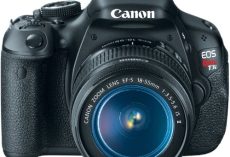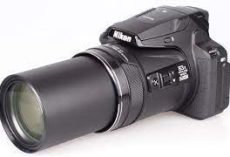There is a lot to consider when purchasing a body camera. In this blog post, we will guide you through the process of finding the best body camera for your needs.
When it comes to body cameras, there are many factors to consider. The first step is to decide what type of body camera you need. There are three main types of body cameras:
Action cameras: These are small, lightweight cameras that can be worn on your body or attached to your clothing. They are perfect for capturing action-packed footage, such as when you are playing sports or engaged in other outdoor activities.
Dash cams: Dash cams are cameras that are mounted on your vehicle’s dashboard. They are typically used to record footage while you are driving, and can be helpful in the event of an accident.
Wearable cameras: These are cameras that can be worn on your body, such as on your shirt collar or lapel. They are ideal for recording events or meetings.
Once you have decided on the type of body camera you need, the next step is to choose the right model. There are many different models of body cameras on the market, so it is important to do your research before making a purchase.
Here are a few things to keep in mind when choosing a body camera
Resolution: The resolution of a body camera is important if you want to capture high-quality footage. Higher-resolution cameras will produce better-quality images and videos.
Battery life: Depending on how you plan to use your body camera, battery life may be an important consideration. If you want to be able to record long videos, or if you plan to use your camera in low-light conditions, you will need a camera with a long battery life.
Storage: Most body cameras come with built-in storage, but you may want to consider purchasing a camera with expandable storage if you plan to record a lot of footage.
Price: Body cameras can range in price from a few hundred dollars to several thousand dollars. It is important to set a budget before you start shopping for a camera, so you can narrow down your options and find the best camera for your needs and budget.
Other features: Some body cameras come with additional features that can be helpful, such as GPS, night vision, and water-resistance.
Once you have considered all of these factors, you should be able to narrow down your options and find the best body camera for your needs.
Tips to help you makethe most of your camera
As body cameras become increasingly popular among police officers andother law enforcement professionals, it’s important to know how to getthe most out of this new technology. Here are 10 tips to help you makethe most of your camera:
Keep your camera charged and ready to go
Makesure your camera is always charged and ready to use. There’s nothingworse than having your camera die in the middle of an important call orsituation.
Keep your camera clean
Keep your camera clean and free of fingerprints and smudges. This will help ensure that your footage is clear and easy to see.
Make sure your camera is mounted securely
Make sure your camera is securely mounted to your uniform. This will help prevent accidental drops or falls.
Be aware of your surroundings
Beaware of your surroundings and pay attention to what’s going on aroundyou. This will help you capture important details in your footage.
Speak clearly and concisely
Whenyou’re speaking into your camera, be sure to speak clearly andconcisely. This will help ensure that your footage is easy tounderstand.
Avoid obstructions
Avoid obstructions, such as trees, bushes, or buildings, that could block your camera’s view.
Turn on your camera’s night vision
Ifyou’re working in low-light conditions, be sure to turn on yourcamera’s night vision. This will help you capture clear footage, even inthe dark.
Use the camera’s zoom feature
If you need toget a closer look at something, use your camera’s zoom feature. Thiswill help you capture clear and concise footage.
Review your footage
Be sure to review your footage regularly. This will help you catch any important details that you may have missed.
Follow your department’s guidelines
Be sure to follow your department’s guidelines for using body cameras. This will help you avoid any potential problems.









